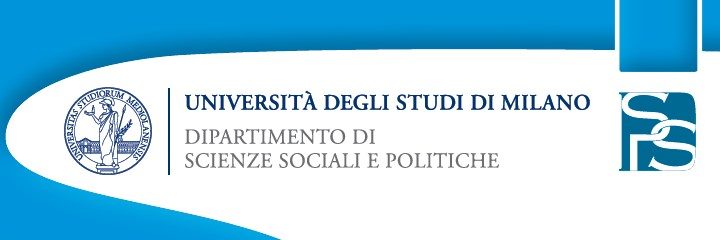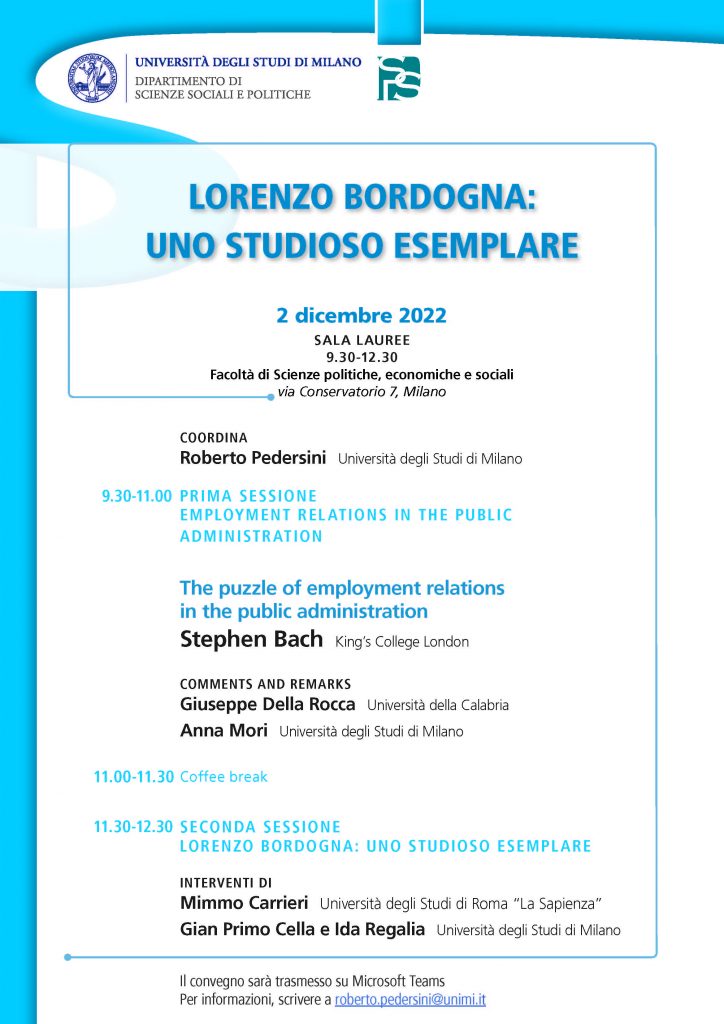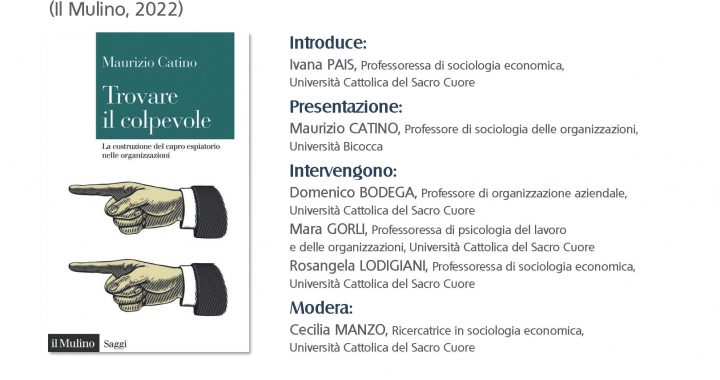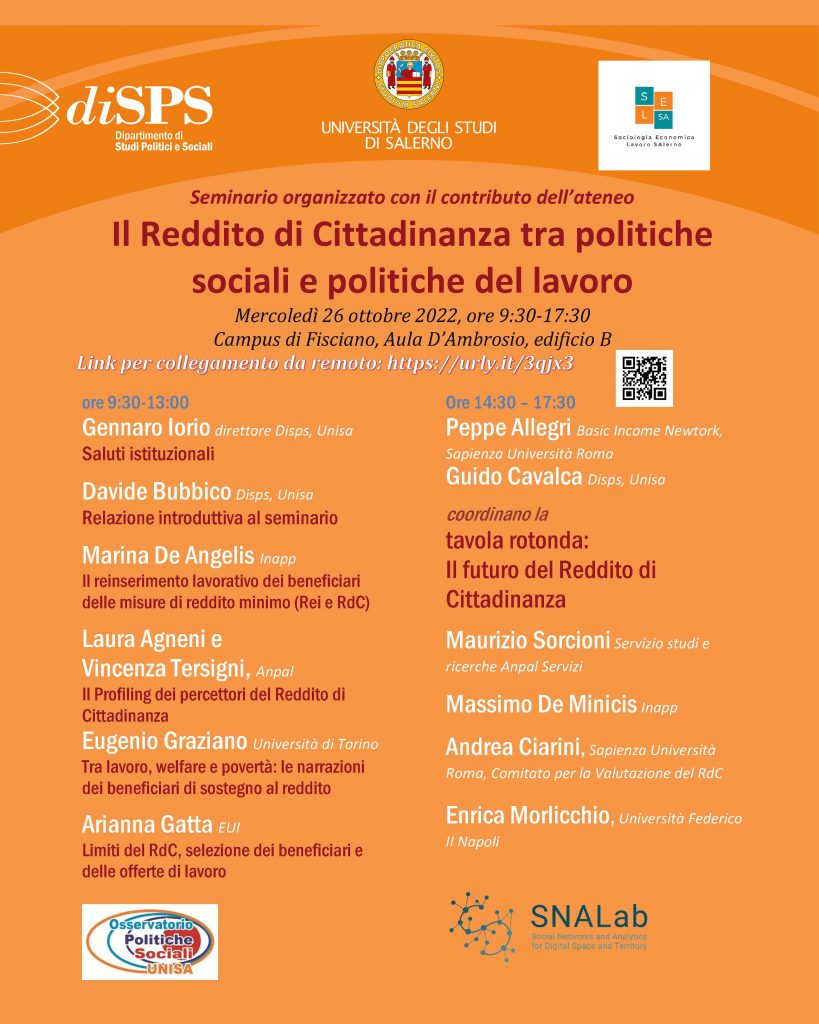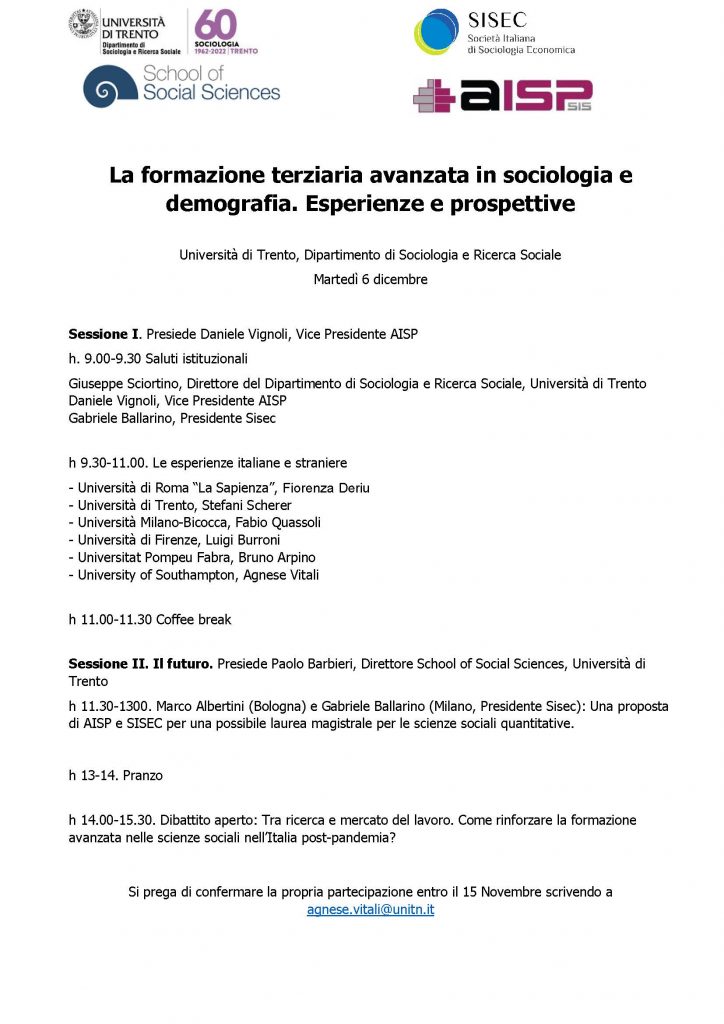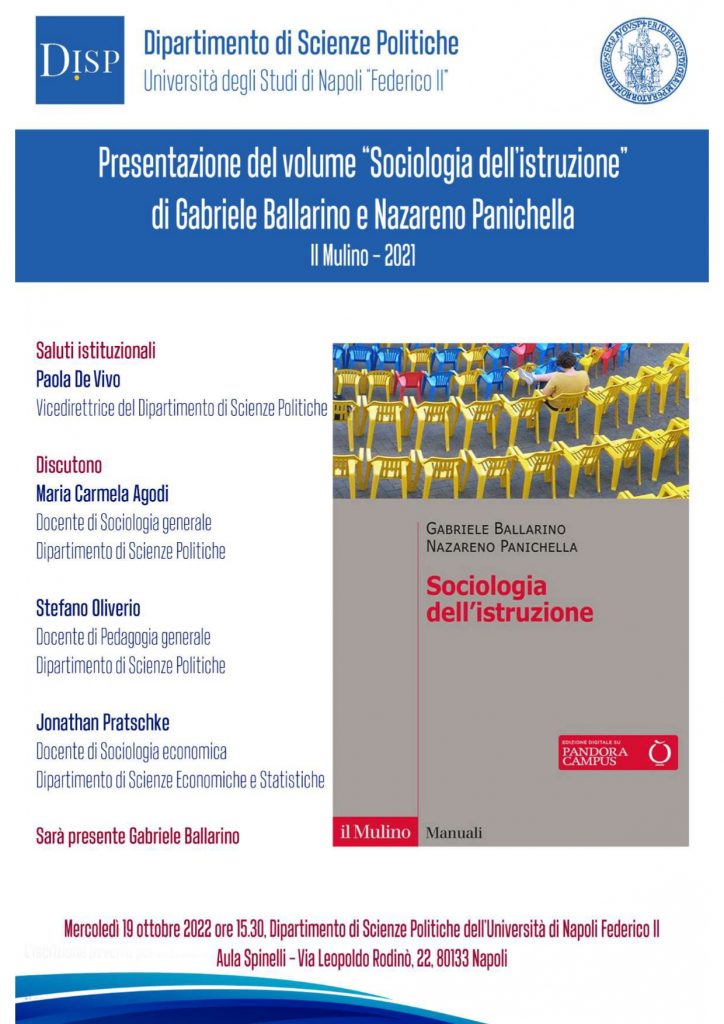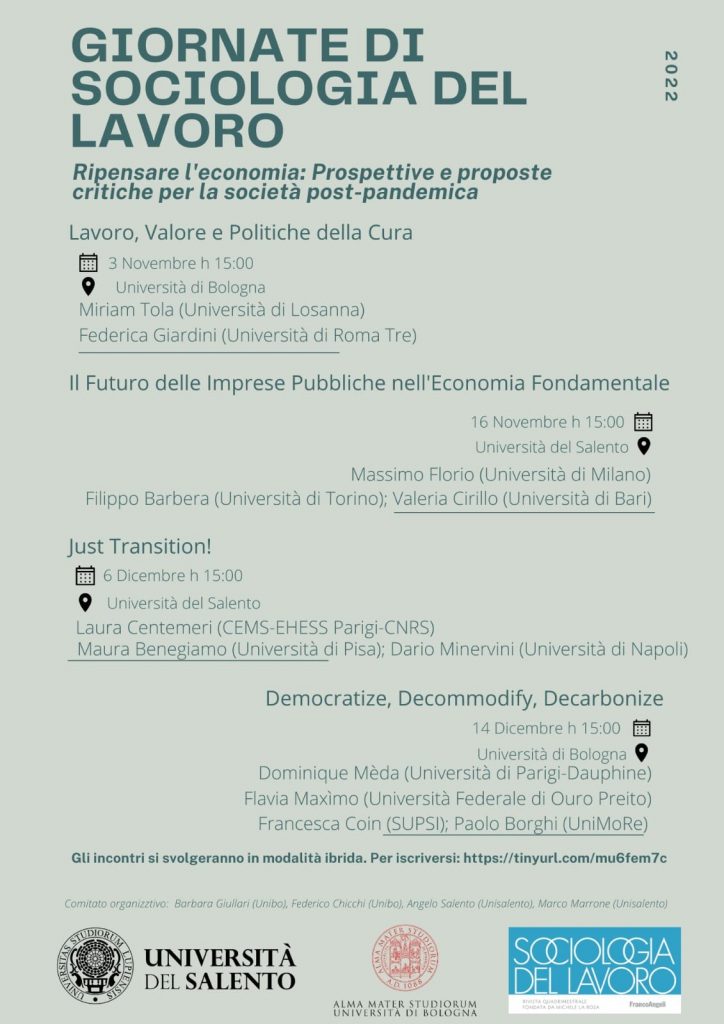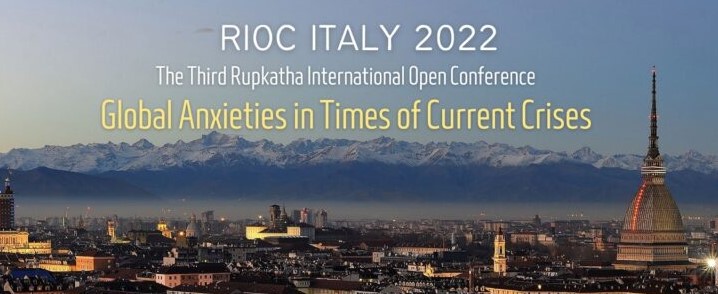Si segnala la call for abstracts del panel 30: Algorithmic organizing and workers’ well-being organizzato da Paolo Rossi e Lia Tirabeni (Università di Milano-Bicocca) nell’ambito della conferenza “Interesting words to come. Science & technology studies facing more-than-human challanges” – STS Italia. La conferenza si terrà dal 28 al 30 giugno 2023 presso l’Università di Bologna. Ulteriori informazioni sulla conferenza sono disponibili qui.
Gli abstract dovranno essere caricati sulla piattaforma della conferenza accessibile da questo link entro il 22 gennaio 2023.
Topics del panel: Health policies, governance and practices in a postpandemic era; Working conditions and organizations interested in and by automation; Algorithmic knowledge, media ecologies and artificial intelligence
Keywords: Algorithm, control, organizing, well-being, workers
Contemporary organizations are increasingly adopting an ‘algorithmic’ logic for realizing artefacts, services and, more generally, different kinds of output [Giardullo and Miele 2020]. Algorithms take the form of procedures that support the elaboration of large amounts of data, and these processes affect a growing number of organizations’ stakeholders, including their workers. In this frame, many authors already suggested the role of algorithms in fostering standardisation, normativity, capitalistic objectives, and rationality. Lash [2007, 71], for example, observed that algorithms figure as ‘‘pathways through which capitalist power works’’. Also, algorithms can embed rules of rationality, and are then characterised by inscrutability and normativity: they can be considered to participate in the political, ethical, or accountable [Ziewits, 2016], and are performative [Introna, 2016]. Further, while traditionally, algorithms have been mainly developed to improve production processes’ effectiveness and flexibility (e.g., in smart automation practices), today algorithms are increasingly being developed and adopted for further enacting managerial control over workers. From this point of view, algorithms can be expressively devoted to tackling the issue of workers’ well-being, that is monitoring their health status, promoting healthy lifestyles, and collecting data for the design of public health policies. Workers’ reactions to introducing this algorithmic control of their well-being can take different shapes. While some workers may accept these algorithms, benefitting from the support they supply for the control of health status, others may sharply reject them, claiming their refusal to what they consider an intrusion on their lifestyles. Likewise, different forms of appropriation can be observed, too, as workers can adapt these technologies to their needs and priorities [Bruni, Andrei and Tirabeni, 2022] deviating from the designers’ intents. The diffusion of algorithms and the emergence of an algorithmic paradigm for handling workers’ well-being can be considered an instance of neo-taylorist entrepreneurial strategies. Likewise, the algorithmification of workers’ well-being can contribute to the re-emergence of companies’ paternalistic ambition to care for and control their employees. Still, algorithms can represent a trigger for the increasing commodification of healthcare assistance. Notwithstanding, if we accept the idea of the algorithm as a “sensitising concept” [Ziewits, 2016], then we allow more room for reflection and opportunities for resistance and, above all, for appropriation, that is an issue, this last, which normally goes unnoticed in the current debate [Miele and Tirabeni, 2020]. Starting from these considerations, the panel promotes a reflection on the implications of the algorithmic processes of organizing workers’ health and well-being. Both theoretical and empirical contributions are welcome with a focus on (but not limited to):
– Algorithmic techniques of organizing and workers’ health and well-being;
– Control and monitoring of workers’ productivity through the algorithmification of well-being;
– Acceptance, resistance and appropriation of algorithmic practices of well-being promotion;
– Health and safety of workplace environments under algorithmic control;
– Institutional engagement and arrangements for the algorithimic control of workers’ health and well-being;
– The enactment of control and surveillance through workers’ well-being;
– Neo-taylorist and neo-paternalistic control of workers’ well-being.
